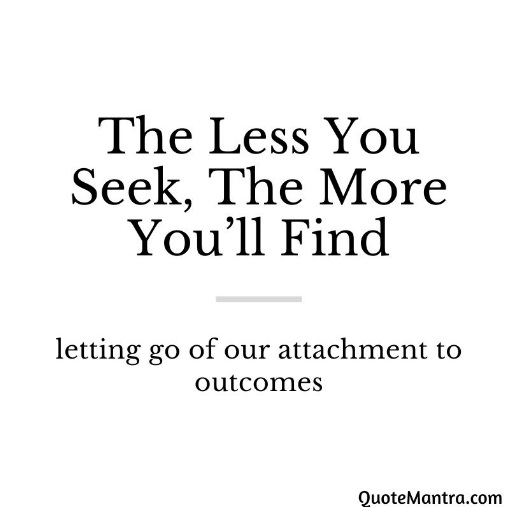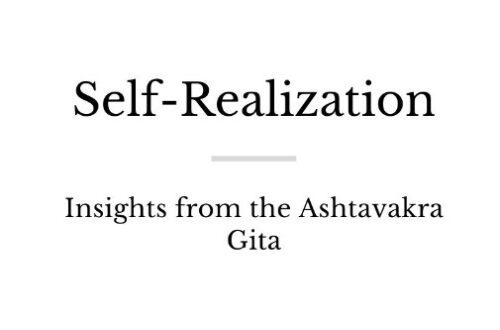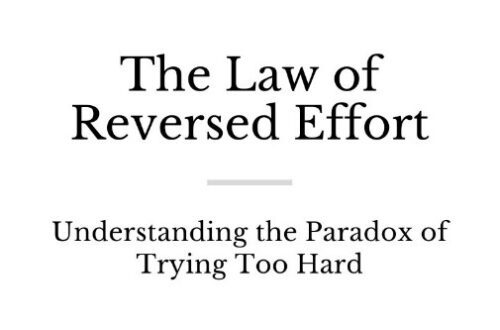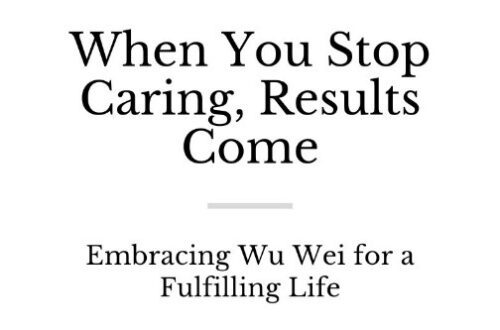
The Less You Seek, The More You’ll Find
The phrase “the less you seek, the more you’ll find” often suggests that if you focus less on searching for something, you may actually discover more. the idea that “the less you seek, the more you’ll find” encourages us to let go of our obsessive desire to control outcomes and instead focus on the present moment, allowing us to appreciate what we have and open ourselves up to new opportunities and experiences.
“The less you seek, the more you’ll find” is a phrase that has gained popularity over the years, and for good reason. It suggests that sometimes, in our pursuit of something, we can become so focused on finding it that we miss out on the very things that could lead us to it. The idea behind this phrase is that we should loosen our grip on our desires and trust that by being present, patient, and open, we may actually discover more than we ever could have by actively seeking.
At its core, this idea is about surrendering control. It is acknowledging that some things are beyond our power to control, and that the more we try to force them to happen, the more we may be hindering ourselves. This can be difficult to grasp, especially in a society that values productivity, ambition, and achievement. We are taught that we need to constantly strive for more, and that success results from hard work and dedication. While these values can be important in many contexts, they can also lead us down a path of burnout, anxiety, and disappointment.
So, what does it mean to “seek less“? It means letting go of our attachment to outcomes and instead focusing on the present moment. It means trusting that everything will happen in its own time, and that we can’t force things to happen before they are ready. This can be especially challenging when we are in pursuit of something that feels urgent or important, such as a job, a relationship, or a creative project. But by letting go of our need to control the outcome, we allow ourselves to be more open to the possibilities that surround us.
One of the key components of seeking less is mindfulness. Mindfulness is the practice of being present in the moment, without judgment or distraction. Mindful, we can fully engage with our surroundings and experiences, rather than being caught up in our thoughts and worries. This can help us notice opportunities and connections we may have missed if we were too focused on our goals. Additionally, mindfulness can help us cultivate a sense of gratitude for what we already have, which can lead to feelings of contentment and happiness.
Another important aspect of seeking less is patience. When we are in pursuit of something, it can be easy to become impatient and frustrated when things don’t happen as quickly as we would like. However, by accepting that things will happen in their own time, we can reduce our stress and anxiety and focus on enjoying the journey rather than fixating on the destination. This doesn’t mean that we should be passive or complacent, but rather that we should be willing to work hard and be persistent while also acknowledging that we can’t control everything.
One of the benefits of seeking less is that it can actually lead to more success and fulfillment in the long run. When too focused on achieving a specific outcome, we may miss out on opportunities that could lead us in a different, equally rewarding direction. Being open and flexible allows us to be guided by our intuition and creativity, which can lead to unexpected and exciting outcomes.
In relationships, seeking less can mean letting go of our attachment to certain outcomes, such as getting married or having children. This can be especially difficult when we feel pressure from society or our own families to conform to certain expectations. However, building strong connections based on mutual respect and care can create fulfilling relationships that may or may not involve traditional milestones.
Of course, seeking less is not always easy. It can be challenging to let go of our attachment to certain outcomes, especially when we feel like our happiness or success is at stake. It can also be difficult to be patient and trust that things will work out, especially when we are in the midst of uncertainty or adversity. However, with practice, we can cultivate the mindset and habits that allow us to seek less and discover more.
One way to start seeking less is to practice mindfulness. This can be done through meditation, yoga, or simply taking a few minutes each day to focus on our breath and surroundings. By becoming more present in our daily lives, we can begin to notice the opportunities and connections that are already around us.
Another way to seek less is to cultivate a sense of gratitude. This can be done by keeping a gratitude journal, expressing gratitude to others, or simply taking time each day to reflect on the things we are grateful for. By focusing on what we already have, rather than what we lack, we can begin to feel more content and fulfilled.
Lastly, seeking less is about letting go of our attachment to outcomes and instead focusing on the journey. This means being open to new experiences, even if they don’t align with our initial expectations. It also means being willing to take risks and make mistakes, knowing that these experiences can lead us to unexpected and valuable insights.
In conclusion, the idea that “the less you seek, the more you’ll find” is a powerful reminder that sometimes, the best way to achieve our goals and find fulfillment is to let go of our need to control outcomes and instead focus on the present moment. By cultivating mindfulness, patience, and openness, we can discover new opportunities, connections, and experiences that may have otherwise eluded us.
Also read: Unrealistic Expectations and Constant Hoping Can Lead to Unhappiness.




